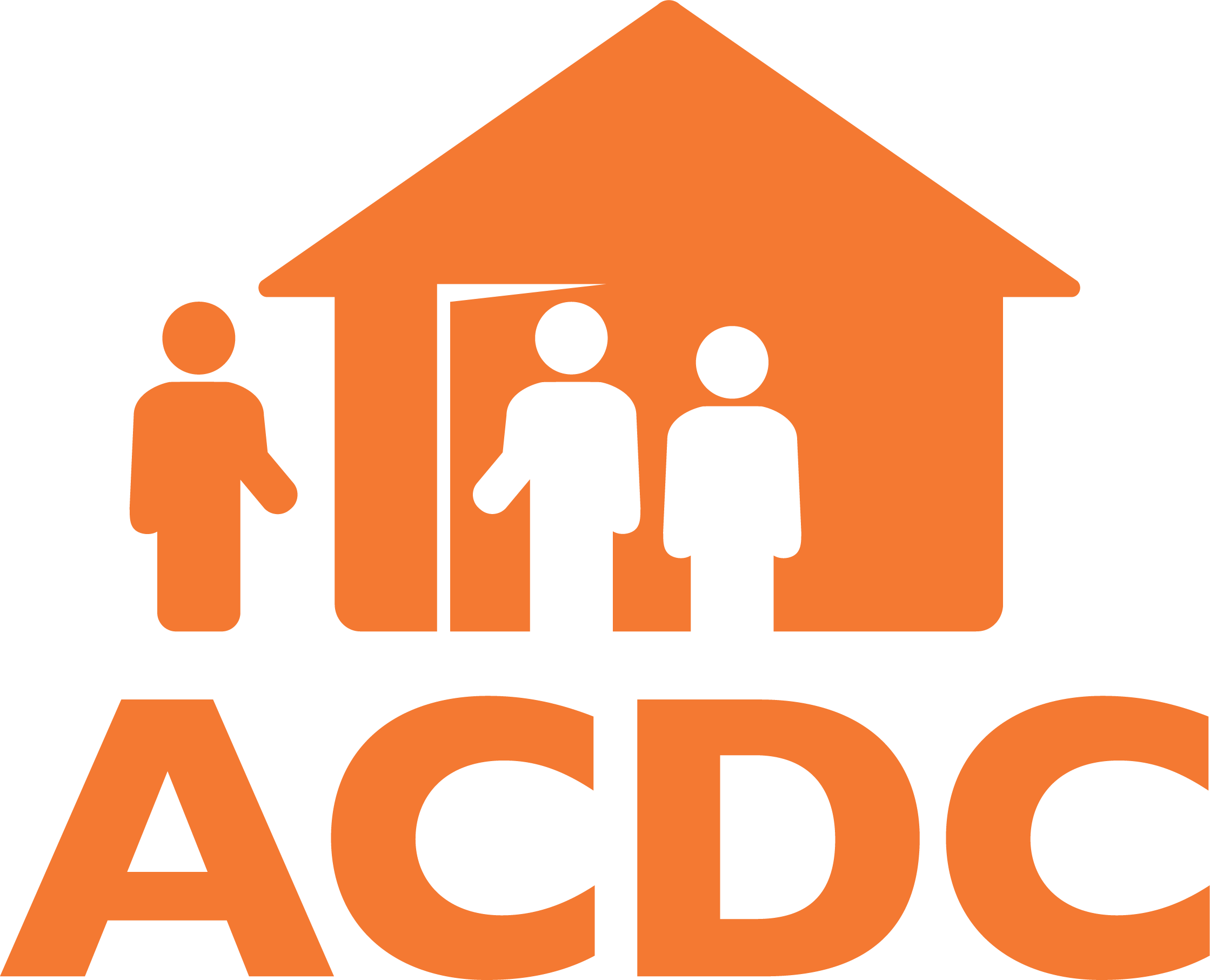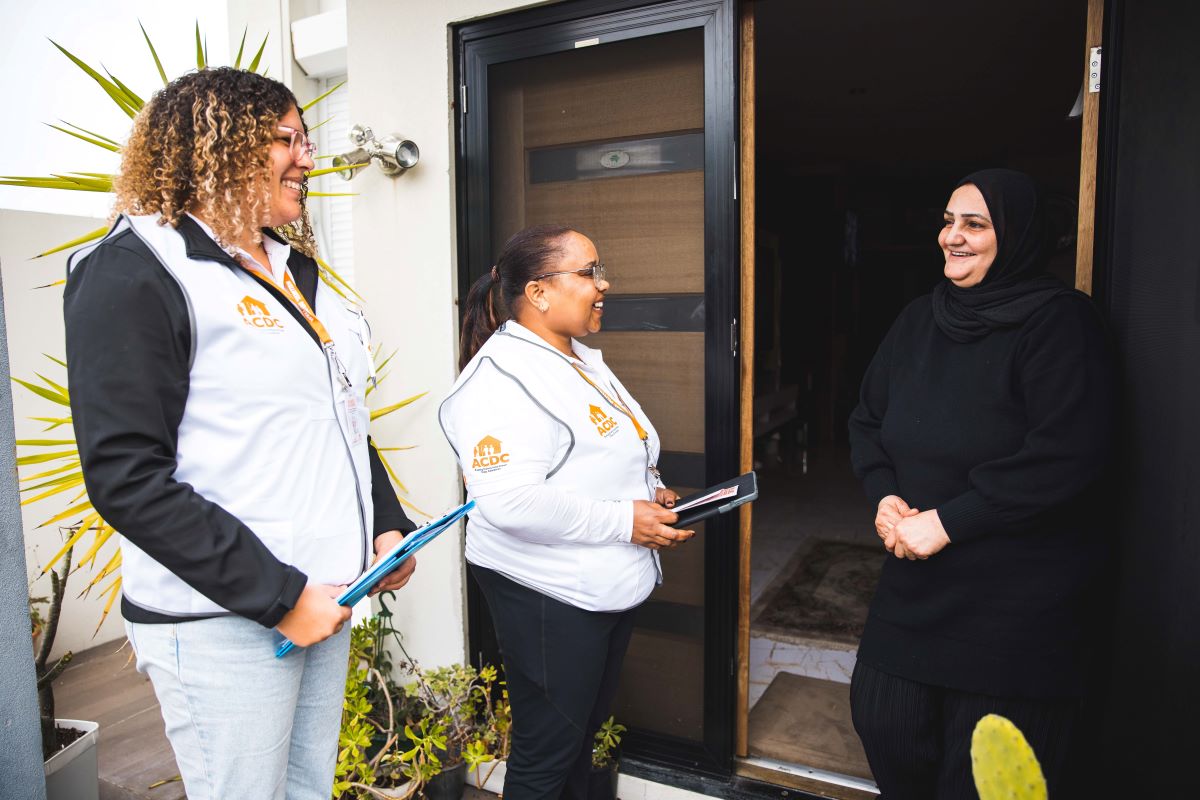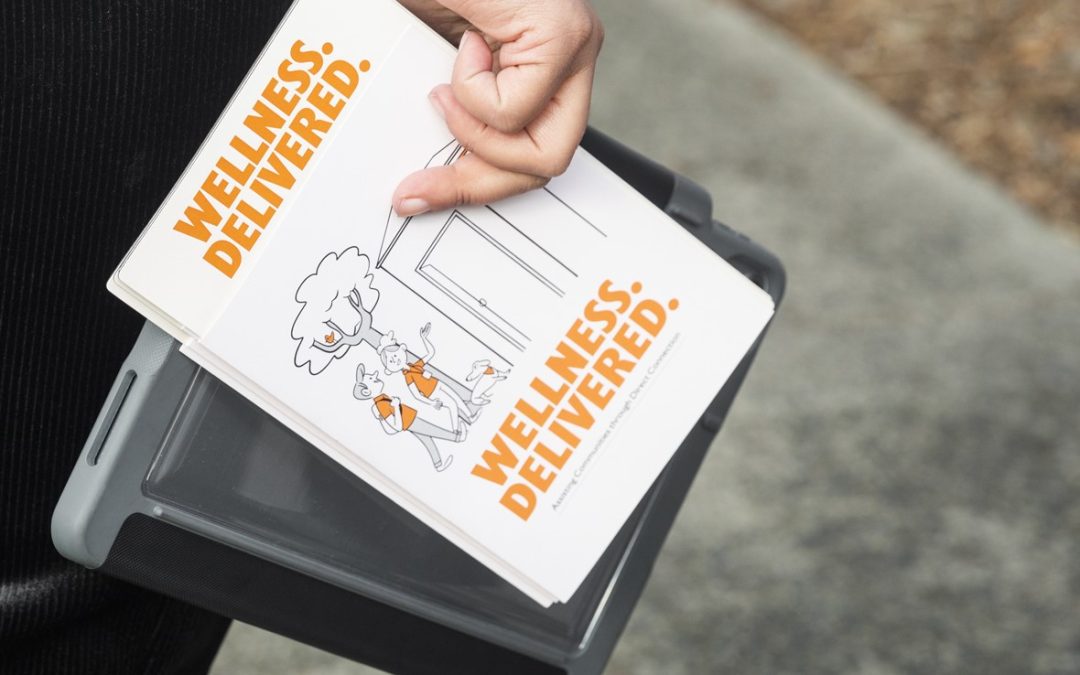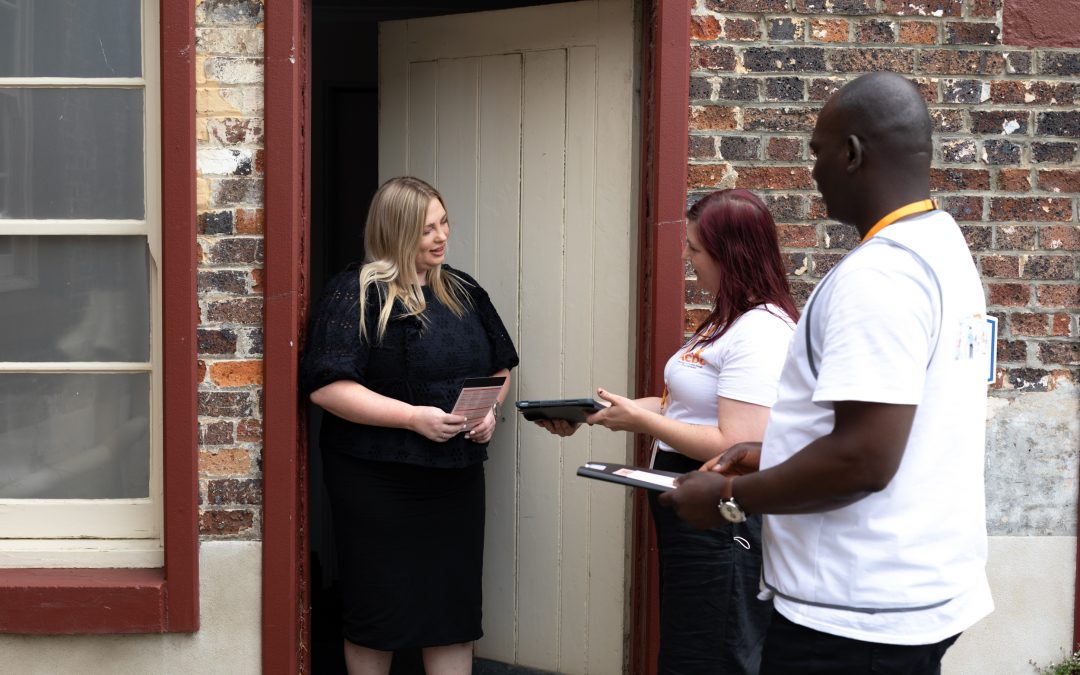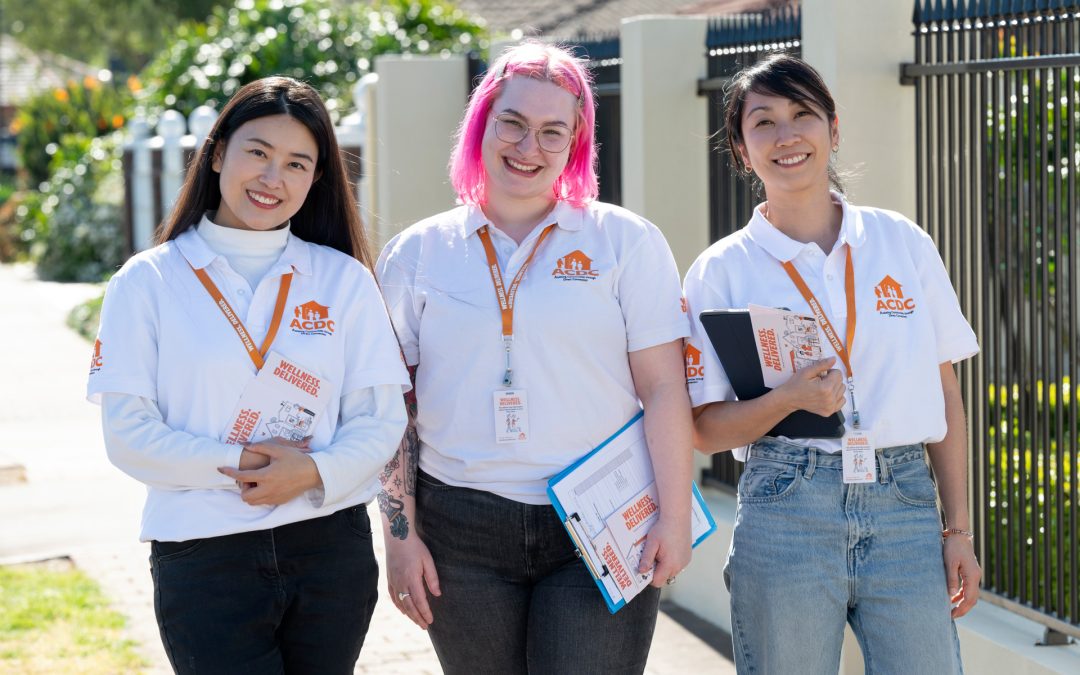Sometimes it only takes a conversation.
After the successful rollout in Beechboro and Ballajura last year, an innovative project which engages householders in conversations about mental health, wellbeing, and support services in their area will now start in the City of Stirling.
The Assisting Communities through Direct Connection (ACDC) Project is going door-to-door to check in with householders, provide information and help people to connect to suitable supports if requested. The ACDC Project, run by Community Mental Health Australia (CMHA), will also identify needs for, and pathways to, psychosocial and wellbeing supports in the community.
CMHA has partnered with Sudbury Community House to doorknock in Mirrabooka, Nollamara and Westminster from July.
“Unfortunately for many reasons, people do not want to talk about, or even think about, their mental health and wellbeing,” says CEO of Community Mental Health Australia, Bill Gye.
“People may prefer to tough it out, hide it from others, or avoid the stigma. The ACDC Project is going directly to households in Australia to engage them in conversation about these important issues.”
The ACDC Project is not typical door-knocking as we know it. Contact is made via friendly ‘People Connectors’ who let householders know about the free or low-cost services available in their area and deliver an information pack with a fridge magnet and brochure.
People Connectors Lynda, Rose, and Danyelle, from Sudbury Community House, are excited about hearing from local people and making connections with them.
“We want to hear about the positive and negative aspects in their lives and what their potential solutions could be if given an opportunity.”
“We think the ACDC Project is different from other mental health and wellbeing projects because we are getting out there and talking to people who may not always have an opportunity to voice their concerns or realise that there are services available that can meet their needs.”
The other aim of the ACDC Project is to gather feedback and collect data on any service gaps so that improvements can be made by local, state, and federal governments.
For each of the communities visited throughout Australia, the ACDC Project will gather information about the reasons why people do not access psychosocial and wellbeing supports.
The findings of the ACDC Project will contribute to discussions about funding for psychosocial and wellbeing services in Australia, and how the support needs of people in communities are delivered.
Previous project data has shown how effective a proactive approach is in reaching, engaging, and resourcing people to connect with local services and supports.
“The ACDC Project aims to address a serious problem with mental health services in Australia. Often, people only look for or receive support when they are in crisis. We must be more proactive in connecting and communicating with people about the importance of wellbeing. Prevention and early intervention are far more effective than dealing with people in crisis,” says Bill Gye.
The ACDC Project provides important information to householders of all educational, cultural, and language backgrounds to promote access to psychosocial and emotional wellbeing support.
If the householder is not home a card is left in their letterbox with contact details so they can ask the People Connectors to come back.
The ACDC Project is funded by the Department of Social Services.
